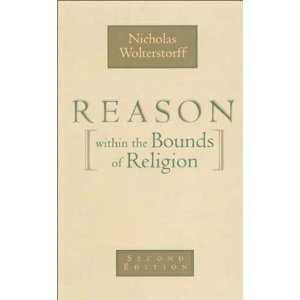Along with my podcast partner, John Poelstra, I have finished reading and then producing a number of podcasts assessing Kyle Idleman’s Not a Fan and Darin Hufford’s Misunderstood God. During these podcasts I was generally unimpressed with these books because I perceived a number of issues with both of them, and one problem in particular.
One way of expressing the problem is that these books both make broad claims yet are actually too narrow. So where they ‘broadly’ aim at presenting the most important aspect(s) of the Christian faith I think that they fail because they lack correct understandings about (and so, as a result, fail correctly to formulate) who God is, what human beings are, and what the relationship between the two is / should be.
Stated differently, their understandings and formulations are skewed because they are derived too narrowly, and it seems to me that this is in three regards.
First, they offer an insufficient reading of the biblical text. In this regard my podcast partner John Poelstra qualified Idleman’s use of Scripture as “amateur,” which I think is entirely accurate. Hufford, by contrast, actually makes no use of Scripture at all: beyond applying the general framework of 1 Cor. 13 to his chapter layout he makes not a single biblical reference.
In other words, to the degree that I have formed my opinions of Christianity from a fairly attentive and rigorous focus on Scripture I necessarily need (and should expect!) Christian authors writing on Christianity to buttress their points with a similarly attentive and rigorous approach to Scripture. To put it another way, I’m looking for more truth than I currently have, not less! So when we’re making truth claims based on the Bible I want to be more assured (not less!) that those claims are legitimate, particularly if what’s at stake is me changing my mind about some aspect of the Christian faith.
Second, the points and arguments of each author lack sufficient integration with other, valid information sources (my mentor likes to call these other “informers”). The basic point here is twofold.
On the one hand, while the biblical text may be rightly interpreted as containing truth claims about God, humanity, and the natural world, such claims are presented as being sufficient but not comprehensive regarding such matters (even regarding God, who is both greater than the text and who is best / most fully imaged in Jesus the Christ, who is the logos—the living word!).
On the other hand, incorporation of other, valid information sources mirrors the basic orientation that must, in my opinion, characterize Christian interaction (both with the Bible, other Christians, and non-Christians): dialogue. Too often Christians take the position of dispute—defensively presenting their perspective as both comprehensive and ultimate. Instead we need to assume a posture of openness that allows us to incorporate more truth into our understandings (because if all truth is God’s truth we need not fear it, no matter where we find it) AND fosters productive interaction with outsiders by demonstrating a willingness to listen while maintaining the possibility of critique.
So Idleman’s emphasis on “following”—and particularly, why Christians don’t follow Jesus well—would have appeared much more credible if his viewpoint was informed by thinkers like Neil Fiore or Merold Westphal, whereas Hufford’s emphasis on love would been better grounded (and so seemed more convincing) if he had integrated the thought and research of someone like Brené Brown.
Third, these authors propose an impoverished view of human beings insofar as they target only one aspect of humanness. By “humanness” I’m referring to the various components that make up human beings (such as our individuation, relationality, situatedness, rationality, emotions, imagination, will, experiences, knowledge claims, situatedness, etc.). So in these two cases Idleman emphasizes ‘the will’ above all else, whereas for Hufford it is ‘the heart’ or the emotions.
Yet a full and robust presentation of the relation between God and human beings must likewise address (and incorporate) the entirety of the human being! In other words, both reason and the emotions / feelings, the will and the imagination, as well experiences and knowledge claims—the entirety of what it means to be human must both be considered and incorporated into any presentation of what is most crucial to the Christian faith.
So from my perspective, from both my studies and my experience, that which is most essential to the Christian God and human beings may best be summarized under the flexible co-centrality of love and truth, truth and love. Yet my belief is that these ‘top level’ characteristics / orientations do not suppress or deny the scope of our humanness but rather situate it properly, by most accurately representing that context within which the full scope of our humanness can meet the richest and most biblical portrayal of who God is, a harmony that is also borne out by my personal experience of / with God.
And this, I wager, is what Christians both want and would expect to see: a view of God and self that accurately reflects the biblical claims; understandings and experiences of self and God / self with God that both confirm and enliven those same claims.

